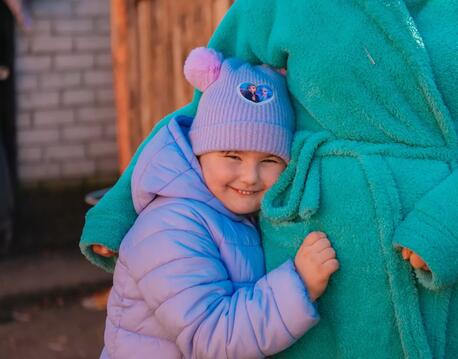
UNICEF Helps Ukraine's Children Stay Warm This Winter, at Home and at School
UNICEF is providing home heating supplies and equipping school bomb shelters with blankets and generators so children can keep learning amid air raids and power outages.
Education can't wait: UNICEF helps children stay in school, despite the war and harsh temperatures
Bomb shelters have become a common sight in schools across Ukraine since the escalation of the war in February 2022. The bomb shelter in the village school in Puzhaykove is simple — a basic two-room basement. But students are safe and warm here, with everything they might need during an air raid, thanks to financial support from UNICEF.
Like his classmates, 15-year-old Daniel has become accustomed to endless power and heating outages caused by the ongoing conflict. Last winter, attacks on energy infrastructure led to power outages that interrupted water networks and access to health and education services for 7 million children across Ukraine. These children spent a cumulative average of five weeks without power during the coldest months of the year.
In 2022, a $3,000 grant from UNICEF helped Daniel's school purchase a generator and electric blankets. "When it is cold, we use the blankets that are in the shelter. It's also great that there is a backup light, so we don't have to sit in the dark," he says.
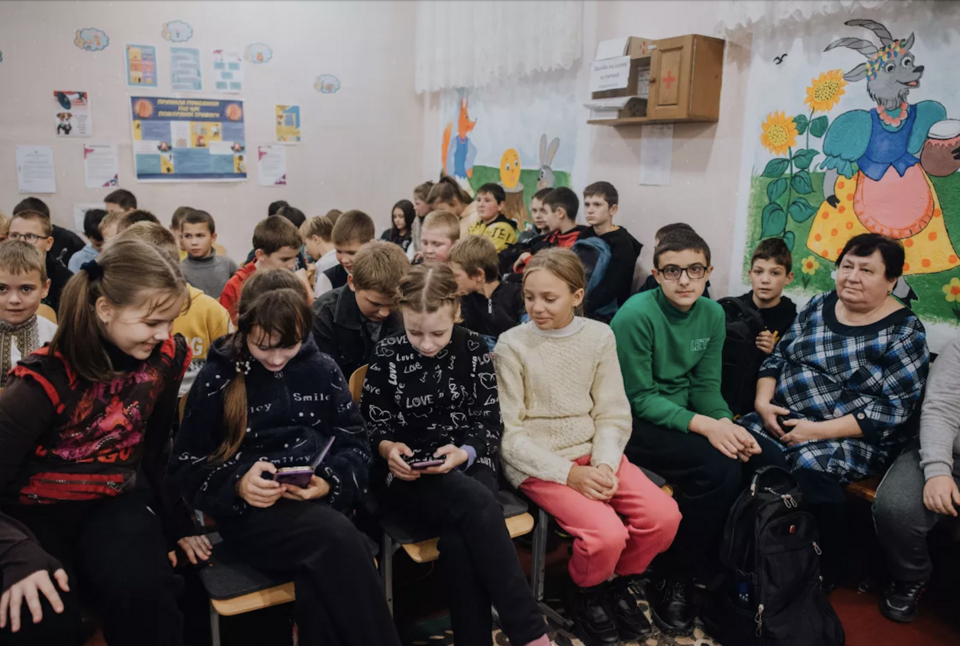
UNICEF has also provided the school with power banks, so even during blackouts, students can charge their phones and call their parents.
Daniel's classmate, 15-year-old Dasha, says that before UNICEF helped the school purchase a generator, it was very cold in the shelter.
"There was no electricity, so we had no heating," she says. "Now it's much better and more comfortable. We have the generator, electric blankets, warm seats on chairs and water supplies."
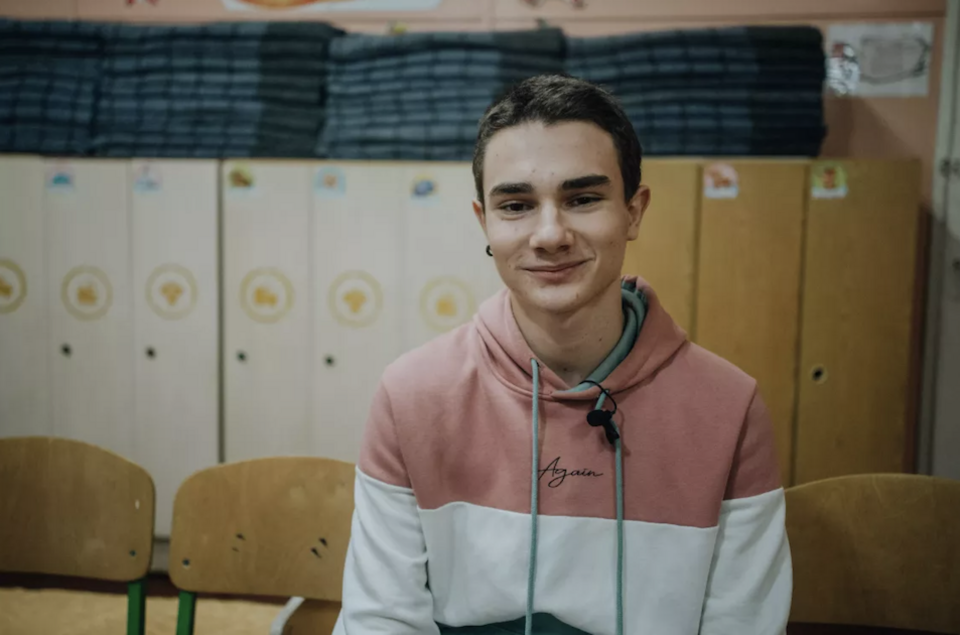
The generator purchased with UNICEF’s support allows the school to run both the boiler and the refrigerator room, where food for the school canteen is stored.
Over 200 students currently attend the school, with another 53 children enrolled in a neighboring kindergarten. Keeping students learning, despite the challenging circumstances, is a UNICEF priority shared by the school's dedicated teachers and administrators.
"Air raid alerts usually last for one or two lessons, and teachers work with the children in the shelter,” says school director Valentyna Doroshenko. “If a lesson is missed because of an air raid, teachers work with students online.”
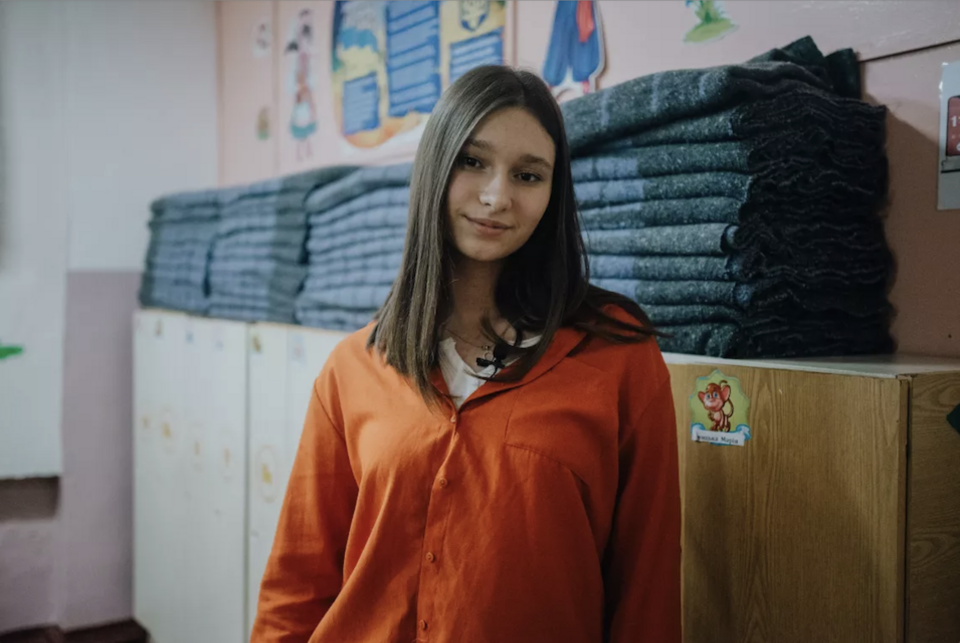
UNICEF provides home heating fuel for at-risk families in Ukraine
To keep children warm and healthy this winter, UNICEF is also providing home heating fuel for families struggling to make ends meet.
Oleksandr and his wife Yulia live in Bezruky, a small village near Kharkiv. With four children – 14-year-old Denys, 5-year-old Karolina and 4-month-old twins Danylo and Matviy – the last two years of war have been a constant worry.
The children have spent most of their time in the hallway, away from the windows. When the shelling becomes severe, they go down to the cellar.
“My older son was more or less okay, but my younger daughter had a hard time,” says Oleksandr. “Things were tough in Bezruky, but we couldn't leave because we had no money or transportation. When something flew or clattered, we told our children that they shouldn't be afraid, it meant that some bad guys were being chased away.”
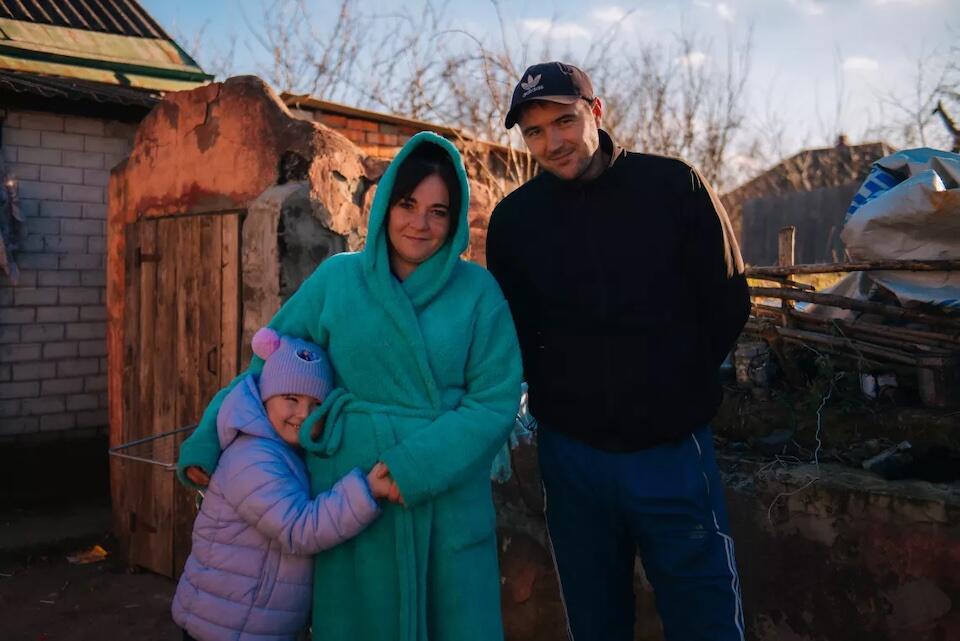
The job market in Bezruky and the nearest town, Dergach, has also suffered as a result of the war. Money has been tight. When the cold weather set in, Oleksandr realized they could not afford to buy much firewood for heating.
“We have a stove in our house, but we don't have gas,” he says. “Before the war, we used to buy one and a half truckloads of firewood, about 16 cubic meters, to heat our house in winter. This year, we only had enough money for 6.5 cubic meters.”
A lack of firewood meant that the family would have had to resort to electric heaters, which are very expensive and impossible to use during power outages.
“There wouldn't have been any other options. And small children get sick from the slightest drop in temperature.”
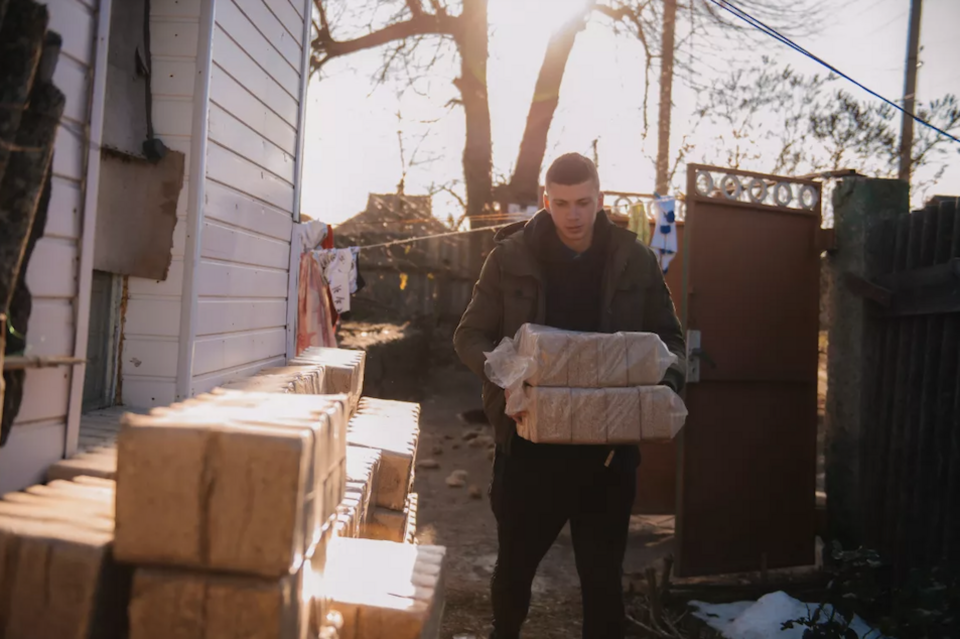
To help them through the winter, UNICEF provided the family with two tons of briquettes for heating. “Now we feel no fear, even if there is no electricity,” says Oleksandr. “It's crucial to be warm.”
With financial support from USAID's Bureau of Humanitarian Affairs and the governments of Belgium, Italy, the Netherlands, Norway, Switzerland, Spain and Vietnam, UNICEF has provided nearly $3.3 million in support to 1,087 war-affected schools in Ukraine since October 2022, reaching more than 500,000 children, including 110,000 winter clothing sets for children across eastern and southern Ukraine.
Send warm thermal blankets to children in Ukraine with a UNICEF Inspired Gift.
Every child has the right to a safe and healthy childhood. Your support for UNICEF can make a difference in the lives of children growing up in difficult circumstances around the world. Please donate.
HOW TO HELP
There are many ways to make a difference
War, famine, poverty, natural disasters — threats to the world's children keep coming. But UNICEF won't stop working to keep children healthy and safe.
UNICEF works in over 190 countries and territories — more places than any other children's organization. UNICEF has the world's largest humanitarian warehouse and, when disaster strikes, can get supplies almost anywhere within 72 hours. Constantly innovating, always advocating for a better world for children, UNICEF works to ensure that every child can grow up healthy, educated, protected and respected.
Would you like to help give all children the opportunity to reach their full potential? There are many ways to get involved.





